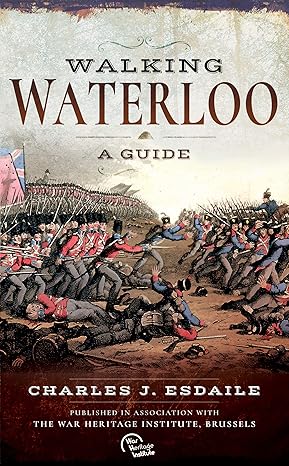Robert Smalls: From Renegade Slave to U.S. Congressman
By Walt Giersbach
 Remarkably few people today know of the illiterate South Carolina slave who stole a warship, ran the Confederate lines to freedom and, within 10 years, had become elected to the U.S. Congress.
Remarkably few people today know of the illiterate South Carolina slave who stole a warship, ran the Confederate lines to freedom and, within 10 years, had become elected to the U.S. Congress.
Robert Smalls’ master knew his teenaged servant was talented, enough so that he hired the boy out in Charleston, S.C., as a longshoreman, then as rigger, sail maker, and finally wheelman — actually a pilot in all but name only.
Smalls was born in the home of his mother’s master, John H. McKee, in Beaufort, South Carolina, in 1839. (Either McKee or McKee’s son may have been Smalls’ father, but this is unconfirmed.) When Smalls was a teenager, his mother asked McKee to allow her son to be rented out for work in Charleston, where he was eventually hired as a deckhand on the coastal cotton transport steamship Planter. In short order, Smalls became the ship’s de facto pilot.”
The noted historian and television host Henry Louis Gates, Jr.’s biography of Smalls notes that “few knew Charleston harbor better than Robert Smalls.” This knowledge became the ticket to his freedom and that of his family’s. [1]
Smalls displayed a domestic side throughout his life. In 1856, he married Hannah Jones, a hotel maid. Two years later, their daughter, Elizabeth Lydia, was born. A second daughter, Sarah Voorhees, was born in 1863.
At the beginning of the War Between the States, the Planter (with Smalls among its crew) was commissioned by the Confederacy for a variety of wartime activities. The ship was notable in destroying a Union lighthouse, transporting arms, and mapping the intricacies of the Atlantic coast. By May 1862, the Union Navy had set up a large blockade around much of the Atlantic and Gulf coasts, cutting off the shipment of supplies to the Confederacy. Smalls and his fellow slaves secretly developed plans to surrender to the Union ships that comprised this blockade.
Gregarious, intelligent, and reliable, Smalls had been granted a great deal of trust by the white Confederates in charge of the Planter, and on the night of May 12, 1862, the white officers left the ship in his charge while it was in port. This was the opportunity Smalls and his band had been waiting for. Smalls sneaked his wife and two small children aboard, along with several other slaves onto the ship and took it out of port. This complex task involved impersonating the white captain of the ship by wearing his wide-brimmed straw hat while expertly giving secret coded signals to Confederate checkpoints. Gates described that moment as follows:
“Just before dawn on May 13, 1862, Robert Smalls and a crew composed of fellow slaves, in the absence of the white captain and his two mates, slipped a cotton steamer off the dock, picked up his wife and two small children at a rendezvous point, then slowly navigated their way through the harbor. Smalls, doubling as the captain, even donning the captain’s wide-brimmed straw hat to help to hide his face, responded with the proper coded signals at two Confederate checkpoints, including at Fort Sumter itself, and other defense positions. Cleared, Smalls sailed into the open seas. Once outside of Confederate waters, he had his crew raise a white flag and surrendered his ship to the blockading Union fleet.”
After a tense approach in which Union ships almost opened fire on the Planter, Smalls surrendered the ship and, along with it, a massive cargo of artillery that just happened to be stored onboard. According to U.S Navy accounts, Smalls’ first words upon reaching the blockade were, “Good morning, sir! I’ve brought you some of the old United States guns, sir!”
Smalls became a celebrity in the North and had a $4,000 bounty put on his head by the Confederacy. In addition to securing his freedom, Small was awarded $1,500 as a reward for the ship and its guns, which he used after the war to purchase the home in which he was born from his former master. According to Gates, Smalls “personally lobbied the Secretary of War Edwin Stanton to begin enlisting black soldiers. After President Lincoln acted a few months later, Smalls was said to have recruited 5,000 soldiers by himself.” According to a biography of Smalls provided by the U.S. House of Representatives: [2]
His escape was symbolic of the Union cause, and the publication of his name and former slave status in northern propaganda proved demoralizing for the South. Smalls spent the rest of the war balancing his role as a spokesperson for African-Americans with his service in the Union Armed Forces. Piloting both the Planter, which was re-outfitted as a troop transport, and later the ironclad Keokuk, Smalls used his familiarty with the South Carolina Sea Islands to advance the Union military campaign in nearly 17 engagements.
In one of those engagements, Smalls refused to surrender to a Confederate ship. Under “very hot fire,” its white captain became so “demoralized” he hid in the “coal-bunker.” For his valor, Smalls was promoted to the rank of captain himself — the first black captain of a United States ship.
From December 1863 on, he earned $150 a month. This made him one of the highest paid black soldiers of the war — and at the still tender age of 24 years! Poetically, when the war ended in April 1865, Smalls was on board the Planter in a ceremony in Charleston Harbor. He received a commission as brigadier general of the South Carolina militia.
Following the war, Smalls returned home and bought his former owner’s house in Beaufort — and he was generous to the economically devastated Kees. As a famous veteran, he was able to enter political life, and from 1870 to 1874 he was elected to the South Carolina state senate - serving five terms before winning a seat in the U.S. House of Representatives in 1875 as a Republican. Smalls served five non-consecutive House terms before South Carolina was redistricted by Democrats to limit the number of blacks elected to Congress. Jim Crow, voter suppression, and violence overtook the Reconstruction-era politics in which he was a key player:
Smalls began his adult life illiterate, but during the war he received a rudimentary education from private tutors in Philadelphia. He was also able to speak the sea island Gullah dialect, and this further cemented his popularity with the local people. While in Philadelphia waiting on repairs to the Planter in 1864, he was taken off a streetcar, which was restricted to white people. In the months following that incident, Smalls led one of the first mass boycotts of segregated mass transportation; the law was changed in 1867 permitting integrated transportation
As a “retiree.” Smalls started a general store, founded a school for African-American children and a newspaper; the Beaufort Southern Standard, starting in 1872. [3]
Smalls continued to push the boundaries of freedom as a first-generation black politician, serving in the South Carolina state assembly and senate, and in the U.S. House of Representatives (1874-1886). Then, tragically, he watched his state roll back Reconstruction in a revised 1895 constitution that stripped blacks of their voting rights.
In 1890, Smalls remarried, to Annie Elizabeth Whigs. A son was born to them, William Roberts. in 1892. Just three years later, his second wife died.
Smalls died Feb. 23, 1915, a highly accomplished free man in the same Beaufort, S.C., property where he had been born a slave. By the time of his death, however, Smalls had become a U.S. Representative, a war hero, a civil rights activist, and a homeowner. “My race needs no special defense,” he famously said, “for the past history of them in this country proves them to be equal of any people anywhere. All they need is an equal chance in the battle of life.”
Footnotes
[1]. Cate Lineberry. Be Free or Die, the Amazing Story of Robert Smalls’ Escape from Slavery to Union Hero. MacMillan, 2018.
[2]. Smalls’ biography by year and achievement; at https://history.house.gov/People/Detail/21764
[3]. https://www.biography.com/political-figure/robert-smalls. One of the most succinct biographies of Robert Smalls can be found at Biography, at https://history.house.gov/People/Detail/21764.
| * * * |
© 2026 Walt Giersbach
Published online: 11/28/2020.
Written by Walter Giersbach.
About the Author:
Walter Giersbach’s fiction has appeared in a score of online and print publications. He also writes extensively on American history, with 10 pieces published in Military History Online. Two volumes of short stories, Cruising the Green of Second Avenue, published by Wild Child (www.wildchildpublishing.com) were available from online retailers until his publisher ceased operations. He served for three decades as director of communications for Fortune 500 companies, helped publicize the Connecticut Film Festival, managed publicity and programs for Western Connecticut State University’s Haas Library, and moderates a writing group in New Jersey.
* Views expressed by contributors are their own and do not necessarily represent those of MilitaryHistoryOnline.com.





